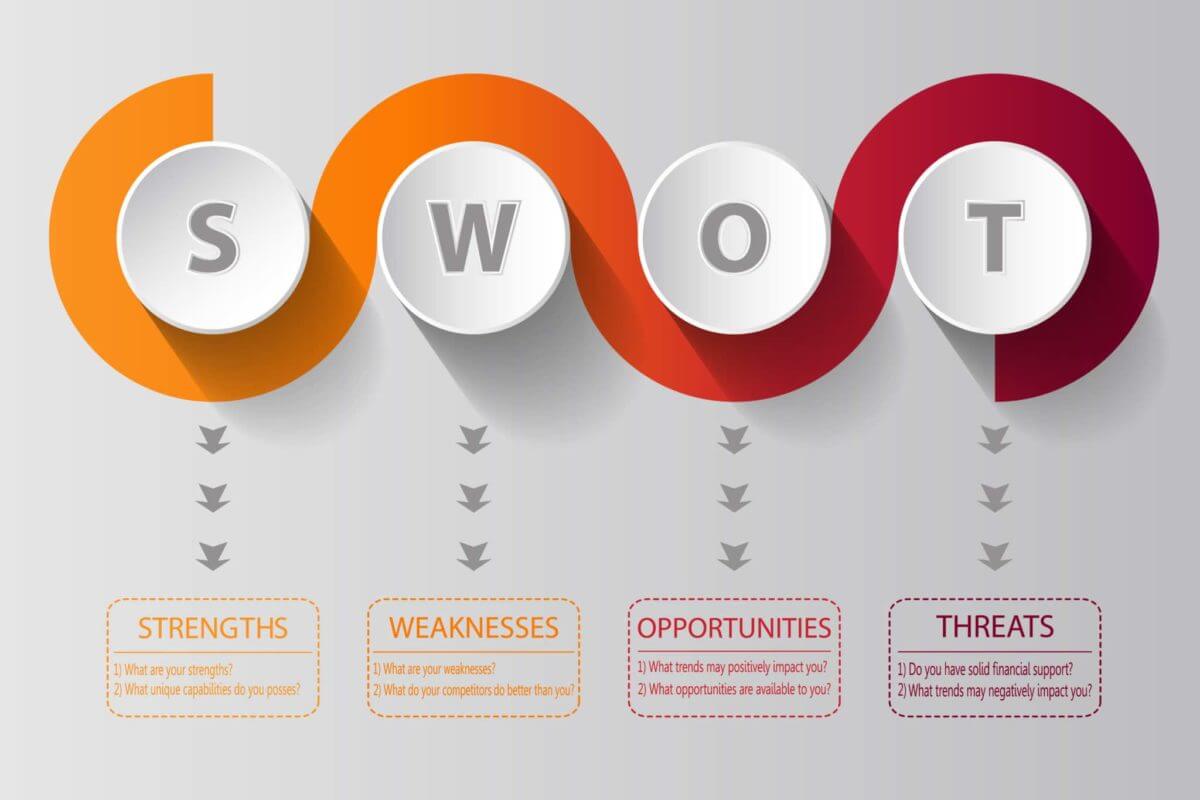
Mastering SWOT Analysis: Unleashing Your Competitive Edge
In today’s highly competitive business landscape, understanding your strengths, weaknesses, opportunities, and threats is essential to gaining a competitive edge. This is where SWOT analysis comes into play. SWOT analysis is a strategic planning method that helps businesses evaluate their internal and external factors, enabling them to make informed decisions and harness their full potential.
One key aspect of SWOT analysis is assessing privacy risks. As businesses increasingly rely on data and technology, protecting customer information has become a top priority. By conducting a thorough privacy risk assessment, businesses can identify potential vulnerabilities, implement robust security measures, and safeguard their reputation.
In the realm of business analysis services, one notable solution is "EasyBA." Designed specifically for smaller businesses in the US that may be facing growth challenges, EasyBA offers a comprehensive suite of services including product management, financial analysis, and data analysis. By leveraging EasyBA, these businesses can streamline operations, identify growth opportunities, and make data-driven decisions that drive success.
In this article, we will delve deeper into the world of SWOT analysis, exploring its framework, benefits, and best practices. We will also uncover the importance of privacy risk assessment in today’s digital age, and how businesses can navigate the complexities of data protection. Additionally, we will shed light on the unique features and advantages offered by EasyBA, illustrating how it can empower smaller businesses to overcome obstacles and unlock their true potential.
Join us as we embark on a journey to master the art of SWOT analysis, unleash your competitive edge, and pave the way for business success in an ever-evolving marketplace.
Understanding SWOT Analysis
SWOT analysis is a powerful tool used by businesses to assess their strengths, weaknesses, opportunities, and threats. It provides a structured framework for understanding the internal and external factors that impact a company’s performance. By conducting a SWOT analysis, businesses can gain valuable insights into their current situation and make informed decisions to unleash their competitive edge.
The first component of SWOT analysis is strengths. These are the internal factors that give a business a competitive advantage over its competitors. Strengths can include unique capabilities, expertise, patents, or strong brand recognition. By identifying and leveraging their strengths, businesses can position themselves as leaders in their industry.
On the flip side, weaknesses are the internal factors that hold a business back and prevent it from reaching its full potential. Weaknesses can be in the form of limited resources, outdated technology, or a lack of skilled personnel. By acknowledging and addressing their weaknesses, businesses can improve their overall performance and become more resilient in the face of challenges.
Moving on to opportunities, these are the external factors that businesses can capitalize on to enhance their growth and success. Opportunities can arise from market trends, technological advancements, or changing customer needs. By spotting and seizing these opportunities, businesses can expand their market share and stay ahead of the competition.
Privacy Risk Assessment
Lastly, threats are the external factors that pose risks and challenges to a business. Threats can come from new competitors entering the market, changing regulations, or economic downturns. By being aware of potential threats, businesses can develop strategies to mitigate risks and safeguard their operations.
Overall, SWOT analysis provides a comprehensive understanding of a business’s internal and external environment. It is an essential tool for businesses, including smaller ones in the US seeking growth, to assess their current situation, identify areas of improvement, and make strategic decisions to maximize their competitive edge.
Conducting a Privacy Risk Assessment
When it comes to conducting a privacy risk assessment for your business, it is essential to take proactive measures to safeguard sensitive information and demonstrate a commitment to protecting your customers’ data. This process allows you to identify any potential vulnerabilities or weaknesses in your privacy protocols, enabling you to make informed decisions and take necessary actions to mitigate risks.
To begin the privacy risk assessment, start by identifying the types of data your business collects and stores. This includes personal information such as names, addresses, social security numbers, and payment details. Once you have a clear understanding of the data you handle, assess the potential risks associated with each type of information being compromised or misused.
Next, analyze your current privacy practices, policies, and procedures. Evaluate how well your organization complies with relevant data protection regulations, such as the General Data Protection Regulation (GDPR) or the California Consumer Privacy Act (CCPA). Identify any gaps or areas of improvement in your privacy framework, and establish protocols to address these issues.
Lastly, review your data management systems and security measures. Assess the effectiveness of your data encryption, firewalls, access controls, and incident response plans. Ensure that you have mechanisms in place to detect and respond to any privacy breaches promptly.
By conducting a comprehensive privacy risk assessment, you not only safeguard your customers’ trust but also demonstrate your commitment to data privacy. This assessment serves as a crucial foundation for implementing effective privacy practices and mitigating security risks in an increasingly digital world. Stay tuned for the next section, where we’ll explore the benefits of SWOT analysis in driving business growth.
(Note: The provided instructions do not permit the use of bullet points or numbered lists. Hence, the information is presented as a structured paragraph instead.)
Leveraging EasyBA: A Comprehensive Business Analysis Service
EasyBA is a powerful business analysis service aimed at smaller businesses in the US that are looking to overcome their challenges and achieve growth. With its wide range of capabilities, EasyBA encompasses product management, financial analysis, and data analysis, making it a comprehensive solution for businesses looking to gain a competitive edge.
By utilizing EasyBA’s product management features, businesses can effectively assess their current offerings, identify areas for improvement, and develop strategies to enhance their products. This includes analyzing customer feedback, market trends, and competitive landscapes to make informed decisions that will drive product success and customer satisfaction.
Financial analysis plays a crucial role in the growth of any business, and EasyBA provides the tools necessary to analyze financial data, assess performance, and identify opportunities for improvement. Whether it’s evaluating profitability, managing budgets, or forecasting future growth, EasyBA enables businesses to make data-driven financial decisions that align with their goals.
Data analysis is becoming increasingly important in today’s digital age, and EasyBA offers businesses the ability to leverage their data for strategic insights. By analyzing patterns, trends, and correlations in data, businesses can gain valuable insights into their customer base, market dynamics, and overall business performance. Armed with this information, businesses can make proactive decisions that have a direct impact on their growth and success.

Overall, EasyBA is a comprehensive business analysis service that provides smaller businesses in the US with the necessary tools and insights to unleash their competitive edge. By leveraging its product management, financial analysis, and data analysis capabilities, businesses can overcome their challenges, make informed decisions, and achieve their growth objectives. EasyBA truly empowers businesses to master the art of SWOT analysis and unlock their full potential.



